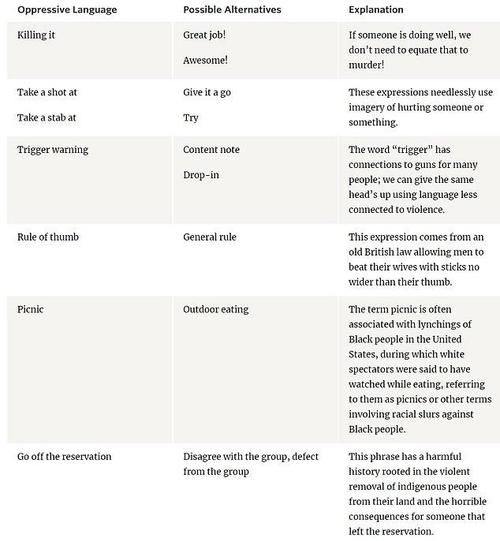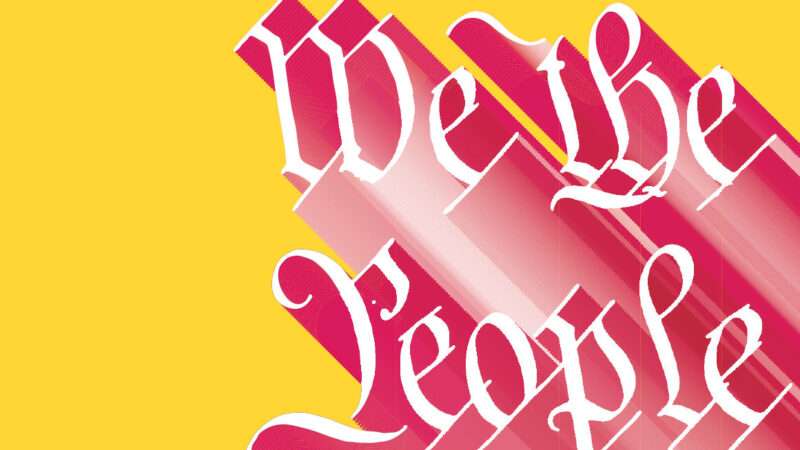The day after the nation’s first COVID-19 lockdown took effect in the San Francisco Bay Area, New York Gov. Andrew Cuomo said he would never impose similar restrictions. Telling residents they may not leave their homes except for “essential” purposes “scares people,” the Democratic governor told The New York Times on March 18, 2020, and “the fear, the panic, is a bigger problem than the virus.” Cuomo unequivocally ruled out a stay-at-home order in New York. “That is not going to happen,” he said.
Two days later, after California Gov. Gavin Newsom, a fellow Democrat, announced a statewide lockdown, Cuomo changed his mind. “We’re all in quarantine now,” he declared on March 20 while issuing an order “mandating that 100% of the workforce must stay home, excluding essential services.”
Cuomo’s sudden turnaround was not hard to understand given the looming threat from the COVID-19 pandemic, which would ultimately kill more than 50,000 New Yorkers. Once Newsom took the step that Cuomo had ruled out, Cuomo did not want to seem reckless by failing to follow suit. “This is the most drastic action we can take,” he told reporters at a press conference in Albany. “This is not life as usual. Accept it. Realize it and deal with it.”
Nearly every governor did eventually accept it. In the name of “flattening the curve” and reducing virus transmission, governors from both major parties imposed sweeping restrictions on social and economic activity. They told hundreds of millions of Americans when they could leave their homes, whether they could go to work or operate their businesses, and under what circumstances (if any) they could interact with people from other households. The “drastic action” that had been unthinkable in early March was taken for granted by April.
That remarkable transformation happened without much thought about the source of the vast powers claimed by politicians such as Cuomo and Newsom. Where did they get the legal authority to unilaterally close down the economy and dictate personal behavior on a massive scale?
While the U.S. Supreme Court had repeatedly held that states have broad public health powers, it also had said those powers were subject to constitutional constraints. State courts had long policed the boundary between executive and legislative powers, a line that many pandemic-inspired decrees seemed to cross. But neither federal nor state courts had ever addressed anything like the COVID-19 lockdowns, which were unprecedented in their scope and duration.
At the beginning of the pandemic, when the nature and extent of the coronavirus threat were unclear, courts generally were not inclined to clarify the nature and extent of constitutional limits on the government’s response to it. Like everyone else, judges were afraid of the virus, and they were reluctant to interfere with the measures that elected officials deemed necessary to deal with it. But more than a year later, thanks to a series of state and federal rulings, we have a better idea of what the government can and can’t do during a public health emergency.
Disputes involving the Second Amendment, access to abortion, and religious freedom have made it clear that an epidemic is not a license to ignore constitutional rights. Nor does it empower government officials to disregard the separation of powers or the distinction between federal and state authority. As U.S. District Judge William Stickman put it last September, when he condemned the “shockingly arbitrary” COVID-19 regulations imposed by Tom Wolf, Pennsylvania’s Democratic governor, “the Constitution sets certain lines that may not be crossed, even in an emergency.”
‘Save the Nation’
The national mood in the early days of the pandemic was not exactly conducive to a calm discussion of legal limits on public health measures. An essay published on the legal commentary site Verdict shortly before Newsom and Cuomo issued their lockdown orders captures the prevailing law-be-damned panic.
“We need to lock down the country—now,” Cornell law professor Michael Dorf wrote. He did not explain the legal basis for a national lockdown, which does not seem to be authorized by any of the powers that the Constitution grants to the president or Congress. But to facilitate that lockdown and “save the nation” from COVID-19, Dorf recommended another constitutionally dubious step: “Congress can suspend the writ of habeas corpus, which ordinarily allows people to go to court to challenge any substantial restraint on liberty.”
The Constitution says “the privilege of the writ of habeas corpus shall not be suspended, unless when in cases of rebellion or invasion the public safety may require it.” Although neither of those circumstances applied, Dorf suggested that the spread of the COVID-19 virus from other countries to the United States could be construed as an invasion. While “no one knows” whether the courts would accept that interpretation, since “Congress has only ever suspended habeas in wartime,” he said, “there is reason to think that the courts would dismiss a habeas case following nearly any congressional suspension.”
When supporters bothered to offer a legal rationale for lockdowns, they usually cited Jacobson v. Massachusetts, a 1905 case in which the Supreme Court upheld a state law that allowed towns to require vaccination during disease outbreaks. In 1902, responding to a smallpox epidemic that began in Boston, the Cambridge Board of Health ordered residents to be vaccinated if they had not been inoculated in the previous five years. Henning Jacobson, minister of the Swedish Evangelical Lutheran Church in Cambridge, refused, citing a bad smallpox vaccine reaction he had experienced as a child. He also refused to pay the resulting $5 fine, arguing that the Massachusetts law violated the 14th Amendment’s guarantees of due process, equal protection, and “privileges or immunities.”
Applying a deferential standard resembling what would later be known as the “rational basis” test, the Court rejected Jacobson’s claims. “There are manifold restraints to which every person is necessarily subject for the common good,” Justice John Marshall Harlan said in the majority opinion. “Real liberty for all could not exist under the operation of a principle which recognizes the right of each individual person to use his own, whether in respect of his person or his property, regardless of the injury that may be done to others.”
But the Court also said a state’s public health authority has limits. “An acknowledged power of a local community to protect itself against an epidemic threatening the safety of all might be exercised in particular circumstances and in reference to particular persons in such an arbitrary, unreasonable manner, or might go so far beyond what was reasonably required for the safety of the public, as to authorize or compel the courts to interfere for the protection of such persons,” Harlan wrote. “If a statute purporting to have been enacted to protect the public health, the public morals, or the public safety, has no real or substantial relation to those objects, or is, beyond all question, a plain, palpable invasion of rights secured by the fundamental law, it is the duty of the courts to so adjudge, and thereby give effect to the Constitution.”
The Massachusetts law passed muster, Harlan said, only because it did not “contravene the Constitution” or “infringe any right granted or secured by that instrument.” That left open the question of how far disease control measures can go before they “contravene the Constitution”—the very issue that the panoply of pandemic-provoked proscriptions imposed in 2020 and 2021 eventually forced courts to confront.
‘A Plain, Palpable Invasion of Rights’
Governors quickly learned that some aspects of their lockdown orders raised serious constitutional issues. When Newsom ordered “nonessential” businesses to close in March 2020, the list of exceptions did not include gun dealers, and he said each county was free to decide whether they qualified as essential. A week later, Los Angeles County Sheriff Alex Villanueva announced that his deputies would be visiting local gun stores, amid a surge in firearm purchases, and ordering them to shut down. That policy prompted a Second Amendment lawsuit by the National Rifle Association and other gun rights groups, and Villanueva quickly capitulated, citing a newly issued Department of Homeland Security advisory that classified gun dealers as “essential critical infrastructure workers.”
Something similar happened in Pennsylvania, where Wolf, like Newsom, did not initially deem gun stores essential. He reversed that position after the Firearms Policy Coalition (FPC) filed a lawsuit arguing that Wolf’s closure order exceeded his legal powers and violated various constitutional provisions, including the right to arms guaranteed by the Second Amendment and Article I, Section 21 of the Pennsylvania Constitution.
Although the Pennsylvania Supreme Court rejected the FPC’s application for extraordinary relief, three justices strongly dissented, and their opinion seemed to sway Wolf. “In light of the regulatory framework attending the sale and transfer of firearms,” they noted, “the inability of licensed firearm dealers to conduct any physical operations amounts to a complete prohibition upon the retail sale of firearms—an activity in which the citizens of this Commonwealth recently have been engaging on a large scale, and one guaranteed by both the United States Constitution and the Constitution of this Commonwealth.”
Wolf’s order, the dissenting justices said, “amounts to an absolute and indefinite prohibition upon the acquisition of firearms by the citizens of this Commonwealth.” They added that “it is incumbent upon the Governor to make some manner of allowance for our citizens to continue to exercise this constitutional right.”
The FPC also challenged an order from New Jersey’s Democratic governor, Phil Murphy, who likewise decided gun stores were essential after all. In Massachusetts, an FPC-backed lawsuit resulted in a May 7, 2020, preliminary injunction in which U.S. District Judge Douglas Woodlock ordered Gov. Charlie Baker, a Republican, to allow gun sales by appointment, subject to disease control precautions.
Unlike the closure of gun stores, which mostly ended without judicial orders, pandemic-related restrictions on abortion were repeatedly rejected by federal courts. According to a tally by the Kaiser Family Foundation, 11 states initially treated abortion as a nonessential or elective medical procedure, meaning it was banned during those states’ lockdowns. Federal judges overturned such policies in Alabama, Ohio, Oklahoma, and Tennessee. The Alabama, Oklahoma, and Tennessee injunctions were upheld on appeal, and Ohio lifted its ban after the district court ruled. In the other seven states (Alaska, Arkansas, Iowa, Louisiana, Mississippi, West Virginia, and Texas), the bans either expired or were lifted, in two cases as part of an out-of-court settlement.
The Alabama case illustrates the point that Jacobson does not give state officials carte blanche to impose whatever policies they deem appropriate in response to an epidemic. U.S. District Judge Myron Thompson issued a preliminary injunction against the state’s abortion policy after concluding that it met Justice Harlan’s test: It was “a plain, palpable invasion of rights” with “no real or substantial relation” to the state’s avowed goals. On appeal, the state again invoked Jacobson, but the U.S. Court of Appeals for the 11th Circuit pointed to that decision’s caveats about constitutional constraints on disease control policies.
“Just as constitutional rights have limits, so too does a state’s power to issue executive orders limiting such rights in times of emergency,” the three-judge panel said in April 2020. Based on the evidence and the relevant case law, the 11th Circuit said, Thompson “was permitted” to conclude that the state’s regulations imposed an “undue burden” on access to abortion, which the Supreme Court has said violates the 14th Amendment.
‘Previously Unimaginable Restrictions’
Whatever you think of the Supreme Court’s abortion precedents, cases like these stand for a principle that anyone who values civil liberties should be keen to defend. “The pandemic has resulted in previously unimaginable restrictions on individual liberty,” Supreme Court Justice Samuel Alito, no fan of Roe v. Wade, observed in a Federalist Society speech last November. Rather than automatically deferring to the presumed wisdom of elected officials, he said, courts have a duty to say when those restrictions exceed constitutional bounds.
Alito called attention to the sweeping language of the statutes that governors cited when they imposed lockdowns. Nevada’s law, he noted, gives the governor the authority, in the event of “a natural, technological or man-made emergency or disaster of major proportions,” to “perform and exercise such…functions, powers and duties as are necessary to promote and secure the safety and protection of the civilian population.”
While “I’m not disputing that broad wording may be appropriate in statutes designed to address a wide range of emergencies,” Alito said, “laws giving an official so much discretion can, of course, be abused. And whatever one may think about the COVID restrictions, we surely don’t want them to become a recurring feature after the pandemic has passed. All sorts of things can be called an emergency or disaster of major proportions. Simply slapping on that label cannot provide the ground for abrogating our most fundamental rights. And whenever fundamental rights are restricted, the Supreme Court and other courts cannot close their eyes.”
To Alito’s dismay, most of his colleagues on the Court initially closed their eyes to the impact that COVID-19 regulations had on religious freedom. To curtail the spread of the virus, many states either banned or severely restricted religious services. Some appeals courts upheld these rules as valid exercises of state public health powers, while others perceived unconstitutional discrimination against religion. But the Supreme Court repeatedly declined to step in, provoking objections from Alito as well as Justices Clarence Thomas, Neil Gorsuch, and Brett Kavanaugh.
Challenges to state limits on religious services hinged on a distinction that the Court drew in the 1990s. In the 1990 case Employment Division v. Smith, the justices held that the First Amendment’s Free Exercise Clause does not require religious exemptions from neutral, generally applicable laws. But three years later, in Church of Lukumi Babalu Aye v. City of Hialeah, the Court said even facially neutral laws are pre-sumptively unconstitutional when they discriminate against religious conduct.
According to these precedents, COVID-19 regulations that impinged on religious freedom were nevertheless consistent with the First Amendment when the distinctions they drew had a plausible public health rationale. But when states applied more stringent rules to religious activities than they did to secular activities that posed similar risks of virus transmission, the regulations were subject to “strict scrutiny,” which in practice meant they would almost certainly be overturned.
This analysis, which essentially requires that states treat like cases alike in this context, leaves considerable room for disagreement about whether religious activities resemble secular activities in all relevant respects. Under a reopening plan that Newsom announced in May 2020, for example, houses of worship were allowed to admit no more than 25 percent of their capacities. When the South Bay United Pentecostal Church in Chula Vista asked the Supreme Court for an emergency injunction against that rule, Alito, Thomas, Gorsuch, and Kavanaugh were sympathetic, but the rest of the Court was not.
“The basic constitutional problem is that comparable secular businesses are not subject to a 25% occupancy cap, including factories, offices, supermarkets, restaurants, retail stores, pharmacies, shopping malls, pet grooming shops, bookstores, florists, hair salons, and cannabis dispensaries,” Kavanaugh wrote in a May 29 opinion joined by the other three dissenters. While the church “is willing to abide by the State’s rules that apply to comparable secular businesses, including the rules regarding social distancing and hygiene,” he noted, it “objects to a 25% occupancy cap that is imposed on religious worship services but not imposed on those comparable secular businesses.”
Chief Justice John Roberts saw things differently. “Similar or more severe restrictions apply to comparable secular gatherings, including lectures, concerts, movie showings, spectator sports, and theatrical performances, where large groups of people gather in close proximity for extended periods of time,” he wrote in a concurring opinion. “And the Order exempts or treats more leniently only dissimilar activities, such as operating grocery stores, banks, and laundromats, in which people neither congregate in large groups nor remain in close proximity for extended periods.”
Roberts emphasized that states have broad authority to protect the public against communicable diseases. “Where those broad limits are not exceeded,” he said, “they should not be subject to second-guessing by an ‘unelected federal judiciary,’ which lacks the background, competence, and expertise to assess public health and is not accountable to the people.”
‘Obvious Discrimination’
The chief justice was similarly deferential two months later, when Calvary Chapel in Dayton, Nevada, unsuccessfully sought an injunction against Democratic Gov. Steve Sisolak’s 50-person cap on religious services. Nevada’s rule was even more onerous than California’s, amounting to a 10 percent occupancy limit for a 500-seat church. Meanwhile, many businesses—including bars, restaurants, gyms, arcades, bowling alleys, and, most conspicuously, casinos—were allowed to operate at 50 percent of capacity, which in the case of casinos meant the state was tolerating indoor gatherings involving hundreds of people.
“Under the Governor’s edict,” Gorsuch noted in his dissent, “a 10-screen ‘multiplex’ may host 500 moviegoers at any time. A casino, too, may cater to hundreds at once, with perhaps six people huddled at each craps table here and a similar number gathered around every roulette wheel there. Large numbers and close quarters are fine in such places. But churches, synagogues, and mosques are banned from admitting more than 50 worshippers—no matter how large the building, how distant the individuals, how many wear face masks, no matter the precautions at all. In Nevada, it seems, it is better to be in entertainment than religion. Maybe that is nothing new. But the First Amendment prohibits such obvious discrimination against the exercise of religion. The world we inhabit today, with a pandemic upon us, poses unusual challenges. But there is no world in which the Constitution permits Nevada to favor Caesars Palace over Calvary Chapel.”
Roberts finally confronted a COVID-19 rule he thought might violate the Free Exercise Clause last November, when the Court considered Cuomo’s regulations, which explicitly applied special rules to “houses of worship.” The governor’s order limited attendance at religious services to 10 people in “red” zones and 25 in “orange” zones, defined based on his assessment of neighborhood COVID-19 trends. Roberts conceded that “numerical capacity limits of 10 and 25 people, depending on the applicable zone, do seem unduly restrictive,” and “it may well be that such restrictions violate the Free Exercise Clause.” But he said there was no need for an injunction pending appeal, because Cuomo had suddenly decided to reclassify the relevant neighborhoods.
By this point, however, Justice Amy Coney Barrett had replaced the late Ruth Bader Ginsburg, which proved decisive. New York’s restrictions “cannot be viewed as neutral because they single out houses of worship for especially harsh treatment,” the new majority said. In red zones, businesses deemed “essential”—including supermarkets, convenience stores, hardware stores, pet stores, liquor stores, laundromats, acupuncturists, banks, and various offices—operated without capacity limits. “The disparate treatment is even more striking in an orange zone,” the Court noted. “While attendance at houses of worship is limited to 25 persons, even non-essential businesses may decide for themselves how many persons to admit.”
Because Cuomo could reimpose his restrictions whenever he wanted, Barrett et al. thought, his mid-litigation change did not make an injunction unnecessary. And since the Brooklyn churches and synagogues that sued Cuomo “have made a strong showing that the challenged restrictions violate ‘the minimum requirement of neutrality’ to religion,” the majority said, they deserved protection from Cuomo’s whims as the case worked its way through the courts.
In February, when the Court blocked enforcement of new California restrictions that banned indoor religious services in most of the state, Roberts was finally persuaded that it was time to intervene. Although “federal courts owe significant deference to politically accountable officials with the ‘background, competence, and expertise to assess public health,'” he said in a concurring opinion, “the State’s present determination—that the maximum number of adherents who can safely worship in the most cavernous cathedral is zero—appears to reflect not expertise or discretion, but instead insufficient appreciation or consideration of the interests at stake.” Roberts also was on board later that month when the Court granted an injunction pending appeal in a case challenging Santa Clara County’s ban on indoor services.
Roberts reverted to deference in April, when he opposed an emergency injunction against California’s restrictions on private prayer and Bible study groups, which limited them to people from no more than three households even when they were held outside. The five justices in the majority thought an injunction was plainly appropriate. By now, they said, it should be clear that public health regulations are subject to strict scrutiny “whenever they treat any comparable secular activity more favorably than religious exercise” and that the relevant consideration is “the risks various activities pose, not the reasons why people gather.” To pass strict scrutiny, a state must “show that measures less restrictive of the First Amendment activity”—such as face masks, physical distancing, and more generous group limits—”could not address its interest in reducing the spread of COVID.”
If there is a consistent principle that explains Roberts’ zigzagging in these religious freedom cases, it is hard to discern. Although he opposed the injunction against New York’s restrictions because Cuomo had lifted them by the time the case got to the Supreme Court, Roberts agreed with the majority that the limits were constitutionally suspect. A month later, the U.S. Court of Appeals for the 9th Circuit cited that decision when it issued a preliminary injunction against Nevada’s limits on religious services—the same rules that did not seem to bother Roberts when the Court declined to grant an injunction pending appeal the previous July. And while Roberts thought California went too far when it banned indoor church services, he was unfazed by the state’s strict limits on private religious gatherings, a policy reminiscent of the Soviet Union.
While Roberts seemed torn between respect for religious liberty and deference to elected officials, Justices Elena Kagan, Stephen Breyer, and Sonia Sotomayor showed no such ambivalence. They always were willing to accept politicians’ public health judgments, even when they were scientifically dubious, changed in the midst of litigation, or resulted in policies that privileged politically influential industries or that explicitly disfavored religious gatherings. It is not clear that Kagan et al. can imagine a disease control policy that would violate the Free Exercise Clause, provided it was presented—as such policies always are—as necessary for the protection of public health.
‘No Statutory or Regulatory Limitations’
In addition to ruling that certain COVID-19 restrictions violated constitutional rights, state and federal courts have found some of them invalid because they were imposed by the wrong branch or level of government. While these cases might seem dull by comparison, they are also ultimately about individual freedom, which structural limits on government power help protect.
When the Wisconsin Supreme Court overturned that state’s lockdown in May 2020, it focused largely on arcane issues of administrative law. But in finding that Secretary of Health Services Andrea Palm’s regulations exceeded her legal authority, the court also emphasized the importance of maintaining a distinction between legislative and executive powers.
The order at issue in this case banned “all forms of travel” except those Palm deemed essential; required “all for-profit and non-profit businesses” she did not consider “essential” to “cease all activities” except for “minimum basic operations” and work done at home; prohibited “all public and private gatherings of any number” involving people who were “not part of a single household”; closed all places of “public amusement and activity,” whether “indoors or outdoors,” except for golf courses; continued the closure of bars and restaurants (except for takeout and delivery) as well as salons, spas, K–12 schools, and libraries; imposed a 10-person limit on religious gatherings, including weddings and funerals; and required all residents of the state, except for members of the same household, to maintain a distance of at least 6 feet from each other. Palm said violations were punishable by a $250 fine, up to 30 days in jail, or both.
Where did Palm get the authority to criminalize such a wide range of previously legal conduct? She cited a statute that gave her department the power to implement “all emergency measures necessary to control communicable diseases.” While that language could be read to authorize Palm’s regulations, it also could be read to authorize pretty much anything.
“Under our constitutional form of government, the Legislature cannot possibly have given the Secretary the authority she believes she has,” Justice Daniel Kelly said in a concurring opinion. “Her brief candidly asserts there are no statutory or regulatory limitations on her authority to address communicable diseases.” When Palm issued her order, Justice Rebecca Bradley added, she “arrogated unto herself the power to make the law and the power to execute it, excluding the people from the lawmaking process altogether.”
A week later, Lake County, Ohio, Court of Common Pleas Judge Eugene Lucci, responding to a lawsuit filed by the 1851 Center for Constitutional Law on behalf of 35 gyms, likewise said his state’s lockdown, which he described as “arbitrary, unreasonable, and oppressive,” exceeded Department of Health Director Amy Acton’s statutory authority. The following month, Erie County, Ohio, Court of Common Pleas Judge Roger Binette, ruling in favor of a water park operator, agreed that the “unbridled and unfettered consolidation of authority in one unelected official is dangerous.”
The Michigan Supreme Court expressed similar concerns when it overturned Democratic Gov. Gretchen Whitmer’s COVID-19 restrictions in October. During a “public emergency,” the state law cited by Whitmer said, “the governor may promulgate reasonable orders, rules, and regulations as he or she considers necessary to protect life and property or to bring the emergency situation within the affected area under control.”
As illustrated by Whitmer’s orders, which dictated when 10 million people could leave their homes, where they could go, what they could do, whether they could earn a living, and even which products they could buy when they shopped at Walmart, the power purportedly granted by that law is vast. It lasts indefinitely and is constrained only by the requirement that the governor’s edicts be “reasonable” and seem “necessary” to her.
As the Michigan Supreme Court saw it, those two words were tiny fig leaves that could not disguise the naked transfer of the legislature’s plenary police powers to a single executive-branch official. The justices concluded that “the sheer magnitude of the authority in dispute, as well as its concentration in a single individual, simply cannot be sustained within our constitutional system of separated powers.”
‘Other Measures’
Lawsuits arguing that COVID-19 orders violated the separation of powers are pending in other states, including Arizona, California, and Montana. And at the federal level, the Centers for Disease Control and Prevention (CDC) raised similar issues when it imposed a nationwide eviction moratorium and re-peatedly renewed it after a congressional extension expired.
The eviction moratorium, which applied to tenants who claimed to have trouble paying rent due to income losses or extraordinary medical expenses, was based on a breathtakingly broad reading of the CDC director’s authority to “take such measures” he “deems reasonably necessary” to stop the interstate spread of communicable diseases. The CDC reasoned that evicted tenants might “become homeless” or “move into close quarters in shared housing,” thereby increasing the risk of virus transmission. That rationale suggests the CDC’s authority encompasses any policy that is plausibly related to disease control, including business closures and a national stay-at-home order as well as the federal face mask mandate that President Joe Biden concluded he did not have the power to impose.
Several federal courts rejected that audacious power grab. After landlords challenged the moratorium, four federal judges and a federal appeals court ruled that the CDC did not have the authority it claimed.
On February 25, J. Campbell Barker, a federal judge in Texas, ruled that even Congress does not have the power to authorize or impose a broad nationwide eviction moratorium like this one. Barker concluded that blocking enforcement of rent obligations exceeds the federal government’s authority to regulate interstate commerce. He noted that the eviction moratorium, which the government claimed it could impose even in the absence of a public health threat like COVID-19, was historically unprecedented, did not involve interstate commerce, and was not necessary to enforce a broader scheme of economic regulation.
Two weeks later, J. Philip Calabrese, a federal judge in Ohio, ruled that the moratorium exceeded the CDC’s authority under the Public Health Service Act. That law mentions these examples of disease control measures: “inspection, fumigation, disinfection, sanitation, pest extermination,” and destruction of infected or contaminated “animals or articles.” It then refers to “other measures” deemed “necessary.” In this context, Calabrese said, the phrase “other measures” means steps similar in nature to the specific examples, which an eviction moratorium is not.
“The most natural and logical reading of the statute as a whole does not extend the CDC’s power as far as Defendants maintain,” Calabrese wrote. “Such a broad reading of the statute, and the term ‘other measures’ in particular, would authorize action with few, if any, limits—tantamount to creating a general federal police power. It would also implicate serious constitutional concerns.” Mark Norris, a federal judge in Tennessee, and Dabney Friedrich, a federal judge in the District of Columbia, reached similar conclusions in March and May, respectively.
The U.S. Court of Appeals for the 6th Circuit ratified that reasoning on March 29, when it refused to issue a stay against Norris’ decision. The Public Health Service Act “cannot support the broad power that the CDC seeks to exert,” the 6th Circuit concluded. Contrary to the CDC’s reading of “other measures,” it said, “government intrusion on property to sanitize and dispose of infected matter is different in nature from a moratorium on evictions.”
‘We Abandon the Constitution’
The month after Michael Dorf demanded a national lockdown and urged Congress to suspend the writ of habeas corpus, two other legal scholars published a Harvard Law Review Forum essay that highlighted the dangers of judicial deference during the pandemic. “Should constitutional constraints on government action be suspended in times of emergency,” asked American University law professor Lindsay Wiley and University of Texas law professor Stephen Vladeck, “or do constitutional doctrines forged in calmer times adequately accommodate exigent circumstances?”
Wiley and Vladeck made a powerful case for the latter position. They noted that “the suspension principle is inextricably linked with the idea that a crisis is of finite—and brief—duration,” and it is therefore “ill-suited for long-term and open-ended emergencies like the one in which we currently find ourselves.” They added that “the suspension model is based upon the oft-unsubstantiated assertion that ‘ordinary’ judicial review will be too harsh on government actions in a crisis”—a notion that seems misguided given that “the principles of proportionality and balancing driving most modern constitutional standards permit greater incursions into civil liberties in times of greater communal need.”
Wiley and Vladeck emphasized “the importance of an independent judiciary in a crisis” as “perhaps the only institution that is in any structural position to push back against potential overreaching by the local, state, or federal political branches.” They quoted George Mason law professor Ilya Somin’s observation that “imposing normal judicial review on emergency measures can help reduce the risk that the emergency will be used as a pretext to undermine constitutional rights and weaken constraints on government power even in ways that are not really necessary to address the crisis.”
Without such review, Wiley and Vladeck warned, “we risk ending up with decisions like Korematsu v. United States,” the notorious 1944 ruling that upheld the detention of Japanese Americans during World War II. The danger of excessive deference, they noted, is that courts will “sustain gross violations of civil rights because they are either unwilling or unable to meaningfully look behind the government’s purported claims of exigency.”
COVID-19 did not kill the Constitution. But the crisis made it vividly clear that we cannot count on politicians or bureaucrats to worry about limits on their authority, especially when they believe they are doing what is necessary to protect the public from a deadly danger. The task of enforcing those limits falls to judges who are willing to stick their necks out.
“All government power in this country, no matter how well-intentioned, derives only from the state and federal constitutions,” Texas Supreme Court Justice Jimmy Blacklock noted a month and a half after the first lockdowns. “Government power cannot be exercised in conflict with these constitutions, even in a pandemic….If we tolerate unconstitutional government orders during an emergency, whether out of expediency or fear, we abandon the Constitution at the moment we need it most.”

from Latest – Reason.com https://ift.tt/3yl7nGY
via IFTTT











